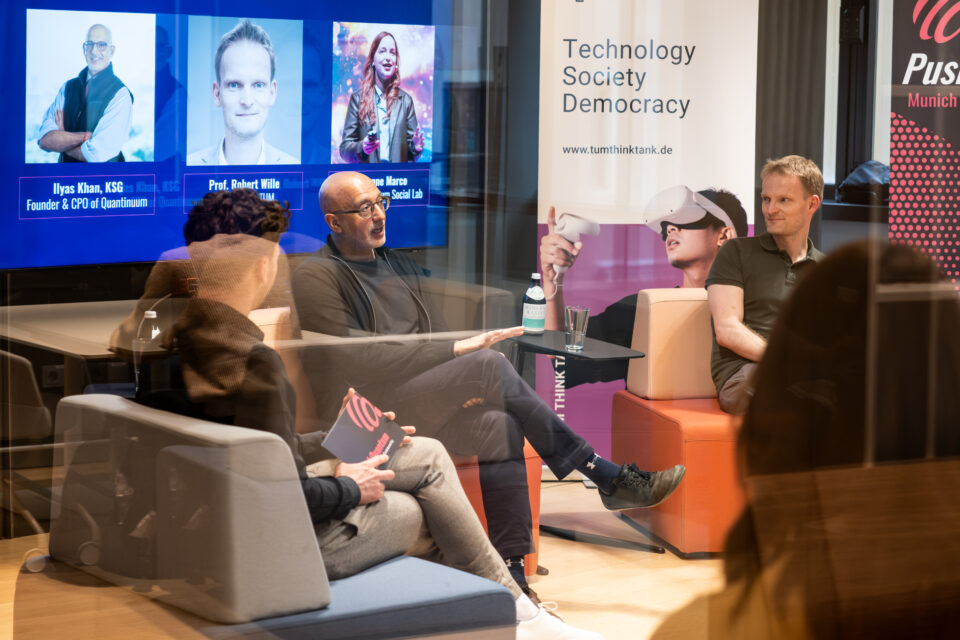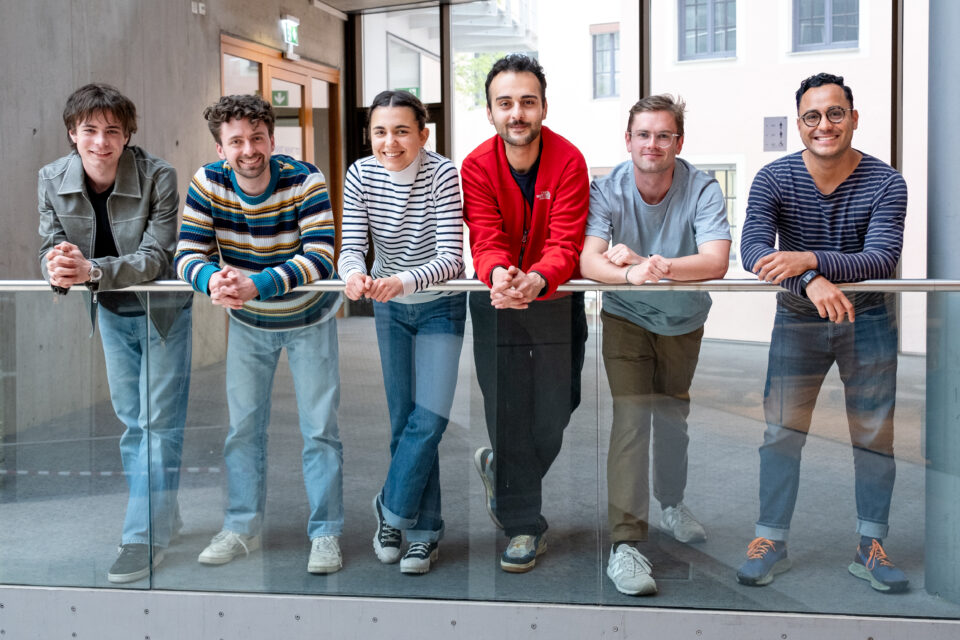TUM Think Tank
Where today's societal challenges meet tomorrow's technological excellence.
How can we pave the way for a bright quantum future?
Last Thursday, PushQuantum started its semester program in collaboration with the Quantum Social Lab. We were pleased to welcome Ilyas Khan to the TUM Think Tank for this special day. The Founder and CPO of Quantinuum did not only join a panel discussion but also spent some quality time with the student’s club members.
One event highlight was the panel discussion, which centered around the future of quantum technologies. Ilyas Khan was joined by Robert Wille, professor at TU Munich and Chief Scientific Officer at the Software Competence Center Hagenberg, and Fabienne Marco, Head of the Quantum Social Lab and Project Lead of QuantWorld.
The panelists shared their perspectives on the future of quantum technologies, drawing from their diverse backgrounds spanning from the quantum computing industry over mathematics and political science to software development.
The panel moderator, Alexander Orlov (PushQuantum), challenged our panelists with questions ranging from the anticipated advancements and major challenges in quantum computing, including education and policy making, to personal experiences. In addition, he elicited rare advice from the panelists on how to accelerate the students’ careers in quantum technology-related fields in an impactful way.
Key takeaways included the importance of learning from past mistakes, finding suitable approaches for education within quantum technologies (and specifically quantum computing), and the need for interdisciplinary work in the field of quantum technology.
When asked about the future of quantum and what will be the crucial factor within further and fast development, Ilyas Khan suggested shifting the focus from coherence times to entropy. ‘I would say that of all the things that matter in the context of possible advantage, I’d encourage you to think of cross-entropy because it can be validated or not. [...] And I think this year, we will incontrovertibly pass that threshold. There is zero question in my mind.’
Talking about education and future talents, the ‘current challenge lies in matching the needs for different parts of the society and a more holistic and interdisciplinary approach within education,’ according to Fabienne Marco.
A common position the panelists had was the importance of changing the narrative within the media from fear to the opportunities connected with quantum technology.
Robert Wille pointed out how important it is to distinguish who is best equipped to solve different challenges: ‘When it comes to quantum computing software, computer scientists have to lead the way.’ Drawing from his personal experience, he also emphasized the importance of sometimes challenging yourself by entering new scientific bubbles to share solutions and avoid reinventing existing solutions in other disciplines.
Thanks to all the panelists for the insightful discussion!
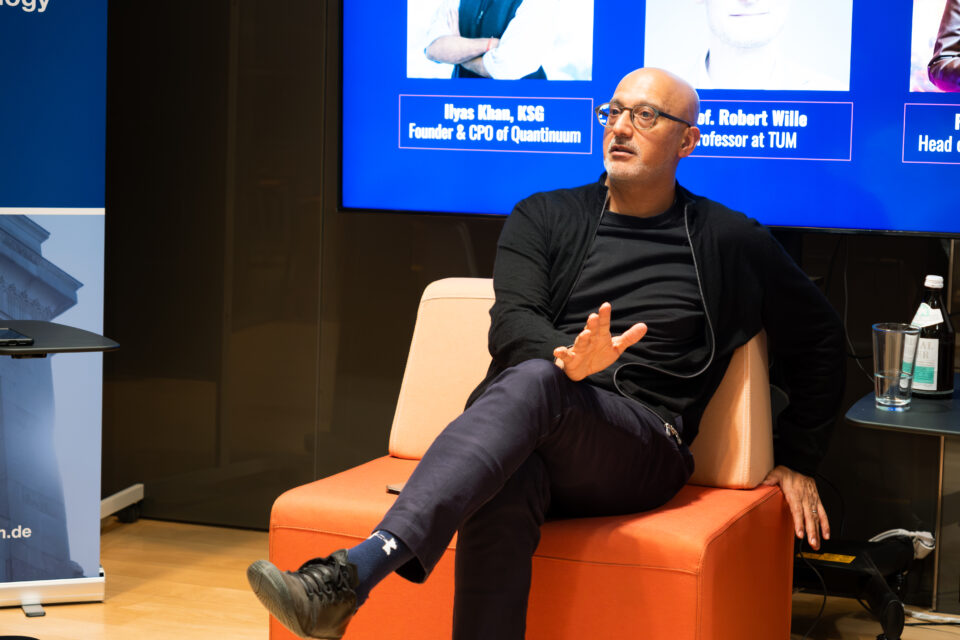
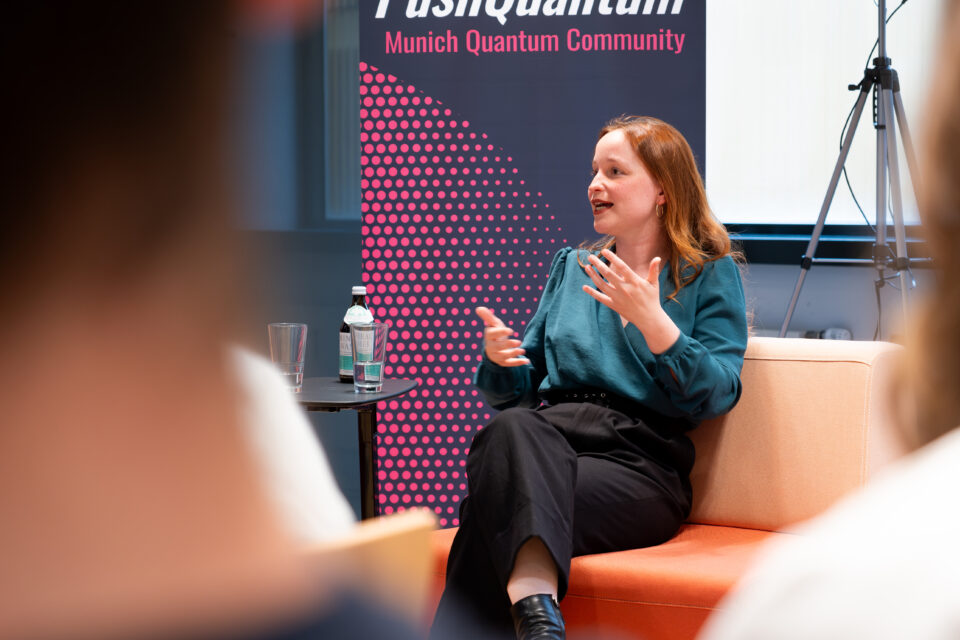

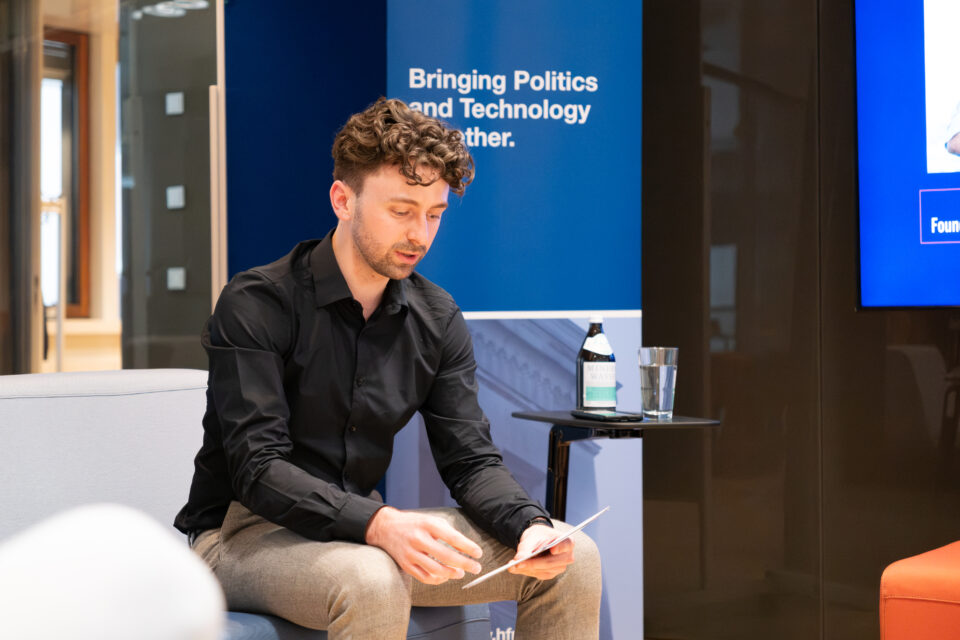
PushQuantum is a Munich-based student club which offers real world-focused education in quantum tech. Within TUM Think Tank's Public Policy Impact Program, PushQuantum focuses on actively contributing to shaping a responsible quantum future - a vision shared with the Quantum Social Lab.
TL;DR
Interesting panel discussion with Ilyas Khan, Robert Wille and Fabienne Marco about the future of quantum technologies at PushQuantum’s semester opening event. Key takeaways included the importance of learning from past mistakes, finding suitable approaches for education within quantum technologies (and specifically quantum computing), and the need for interdisciplinary work in the field of quantum technology.
